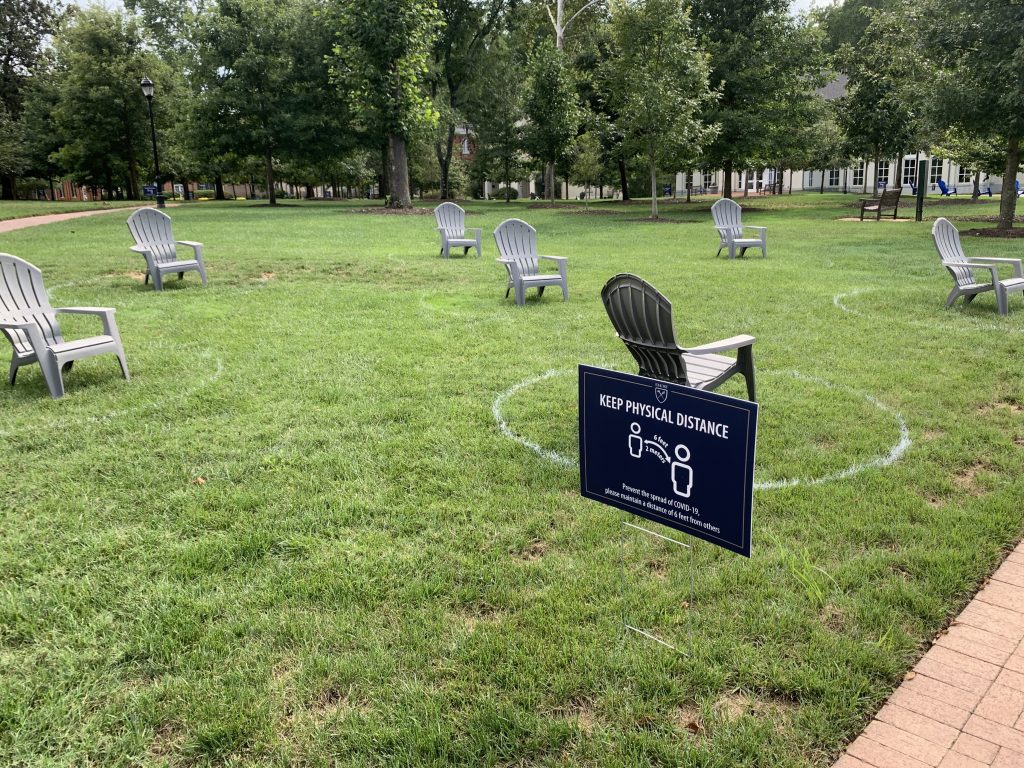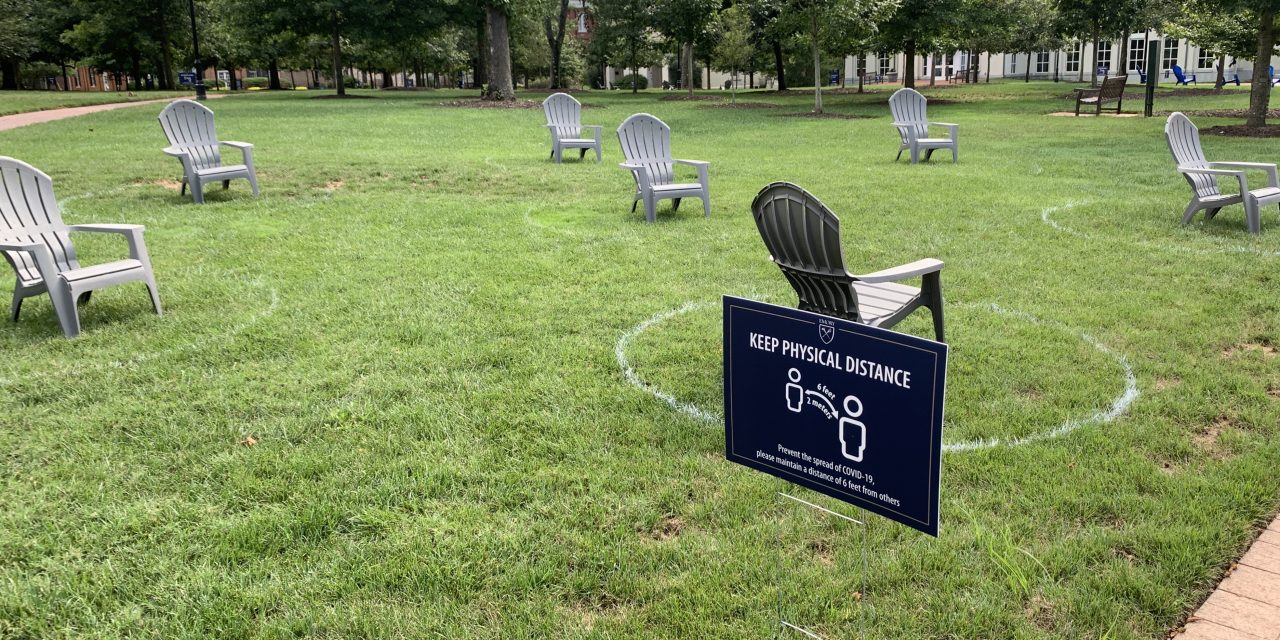Emory Healthcare vaccinated about 1,000 students and many staff and faculty members, on March 27, the first Saturday since Georgia opened vaccine eligibility to everyone age 16 and older.
“We tried to really prioritize and support them getting in to vaccinate as soon as possible,” said Associate Vice President and Executive Director of COVID-19 Response and Recovery Amir St. Clair.
With multiple vaccines available, Emory should have enough appointments available to allow all students in Georgia to get at least one dose of the vaccine before they return home for the summer, “assuming supply holds.”
If a student leaves Georgia before receiving their second dose, they may be able to be vaccinated at home, but this depends on regulations and availability at each particular distribution site, St. Clair explained.

Adaptations made to Emory’s campus to fight COVID-19. (Caelan Bailey)
“It’s so critical that students try and get their first vaccine scheduled as soon as possible so that they can do their second vaccine while they’re still here and not leave it up to chance or rules or protocols elsewhere,” St. Clair said.
Those who received a first dose at another site and have the proper documentation can receive their second dose at Emory Healthcare, said Executive Director of Emory Student Health Services Sharon Rabinovitz.
To ensure students receive a second dose of the correct vaccine after the appropriate number of weeks, St. Clair explained that students will receive a general email when they check into the vaccine site reminding them to schedule a second appointment, as well as more specific instructions at the clinic depending on the type of vaccine they received.
Emory also vaccinated large numbers of employees over the weekend, St. Clair noted. The University provides transportation and technological support to help ensure its staff can get vaccinated as quickly as possible, St. Clair said.
“Because the state expanded to everybody and because supply is holding steady, we’re able to work most of our employee groups through the process at the same time,” St. Clair explained, “But, we are continuing to make sure we provide enhanced services for essential worker groups and our vulnerable populations.”
Students can register and schedule an appointment online through the Emory Forward website.
Emory announces move to ‘yellow’ operating status
Emory will move to a less-restrictive operating status on April 5, the University announced in a March 29 email from St. Clair.
The status change involves increased limits on indoor and outdoor gathering sizes, makes some limited indoor dining available and reopens some of the facilities at the Student Activity and Academic Center (SAAC) at the Clairmont campus, according to a document attached to the email.
Indoor event capacity will rise to 35 people with a time limit of 90 minutes, while the limit for outdoor events increases to 50, with masks and physical distancing required at both types of gatherings. Both on and off-campus events are subject to these regulations.
Some indoor dining will be allowed in the multi-purpose room at the Emory Student Center at the Atlanta campus and at Oxford Dining Hall, limited to students who have a meal plan.
New athletic facilities to become available include the “outdoor pool, tennis courts, sand volleyball court, and outdoor basketball court” at the SAAC. All facilities will still require students to reserve a time slot.
The guidelines will allow some domestic travel and “course activity within a 250 mile radius via ground transportation,” the document states.
The operating condition meter has been in the orange zone since it was introduced in fall 2020.
Latest cases
Emory reported 25 new cases since March 25, including 22 students and three staff members. Among student cases, 12 were off campus. Three cases were reported in Raoul Hall, and two cases each were reported in Longstreet-Means and Complex Halls. The other three student cases included residents of Woodruff Residential Center, Hamilton Holmes Hall and Clairmont Undergraduate Residential Center.
Student cases have fluctuated from day to day over the last several weeks. This is likely due to the schedule of screening tests, and the fact that much more positive tests come from the weekly screening than previously, Rabinovitz said.
“A lot of times, the variations will follow whether the saliva testing is being done [on a particular day],” Rabinovitz said. “That’s a significant part of where we were getting our case numbers over the past week or two. Before we would be getting them also from diagnostic testing, and that number has significantly decreased in the number of cases we’re getting for our diagnostic testing at Student Health or people going outside of the Emory community to get tested.”
Madison Hopkins (23C) is a quantitative sciences and creative writing major from Charlotte, North Carolina. She is interested in pursuing biology research and volunteers as an assistant in the Gerardo lab at Emory. In her free time, she enjoys reading and writing fantasy and science fiction.




